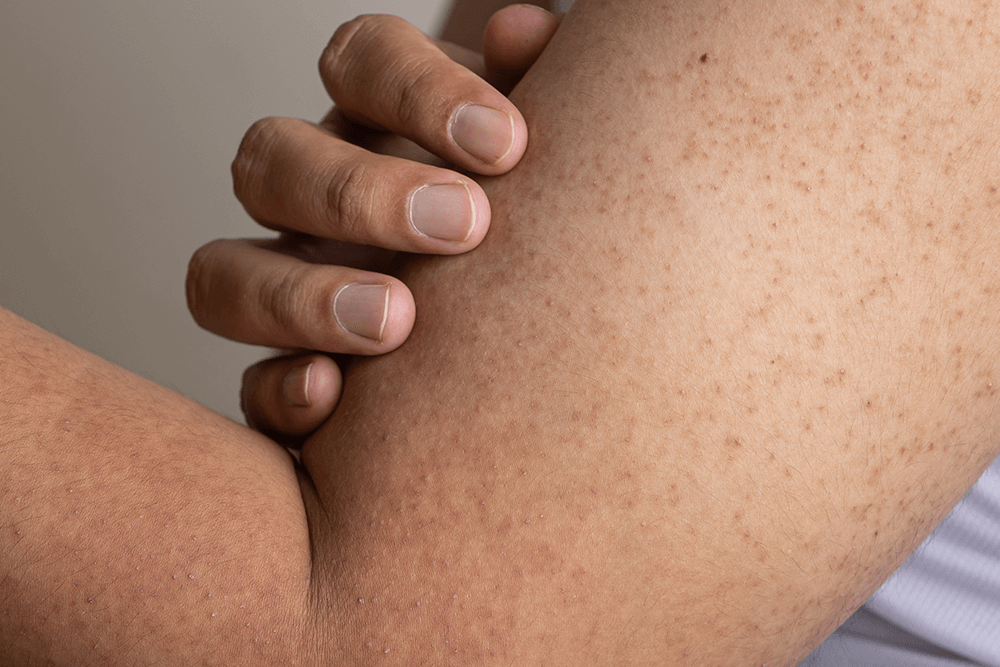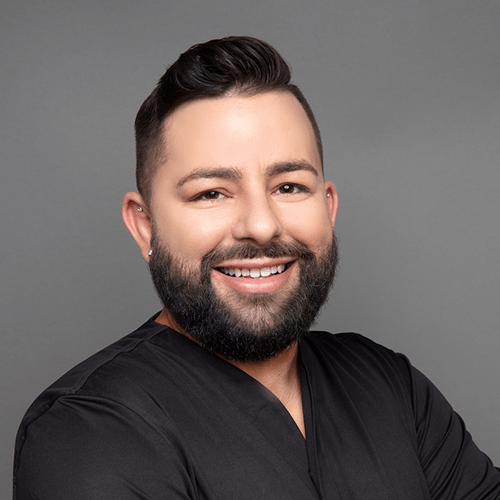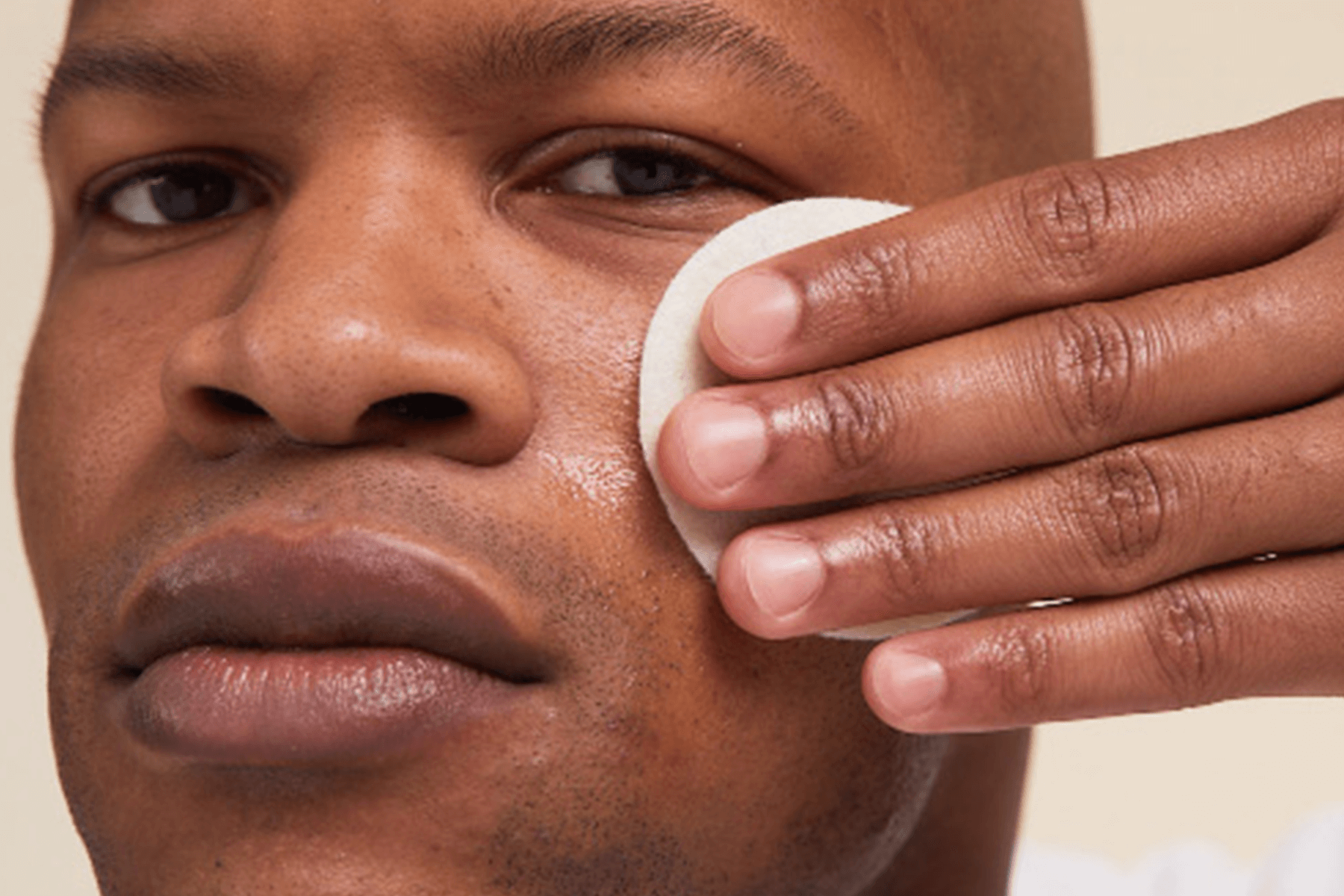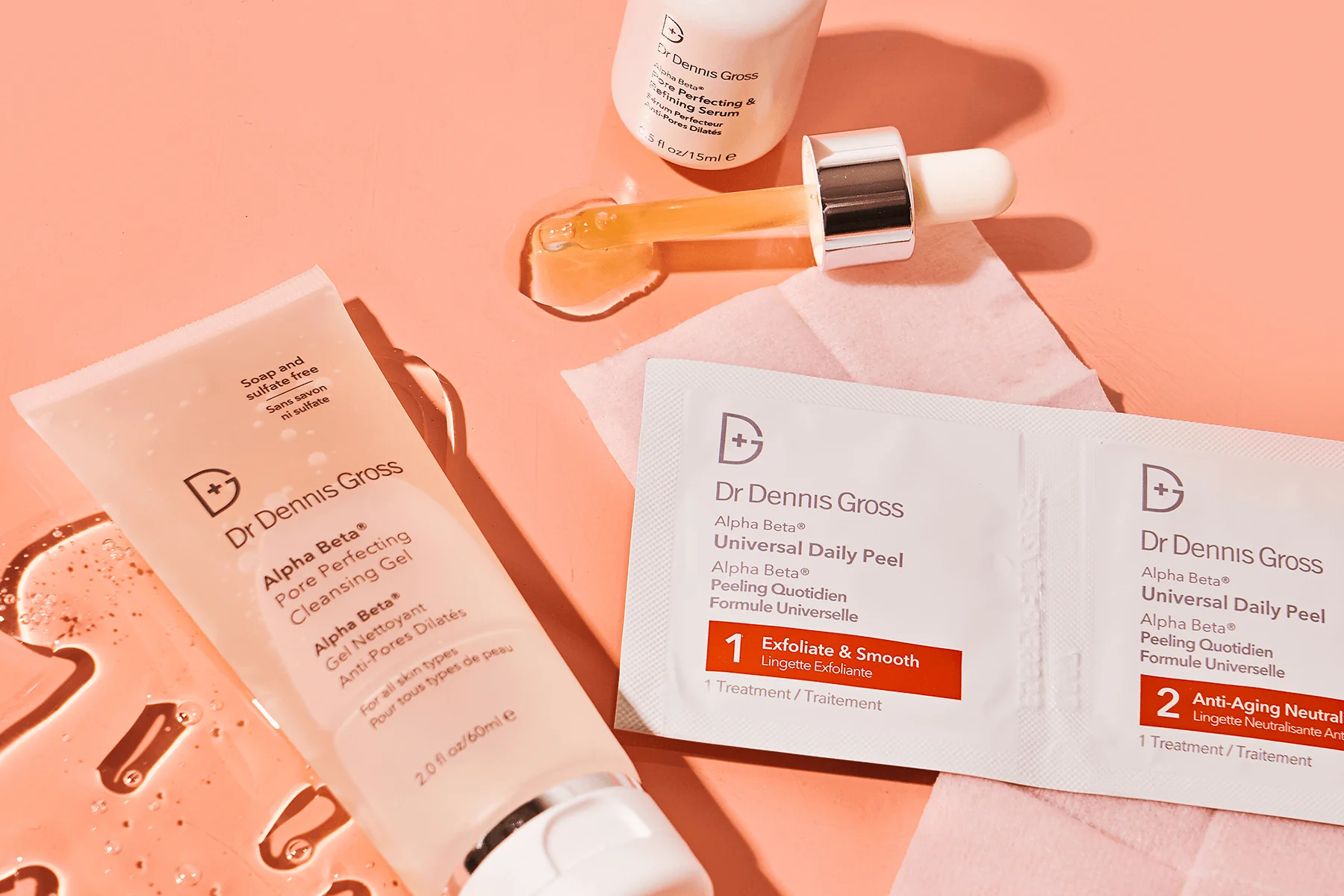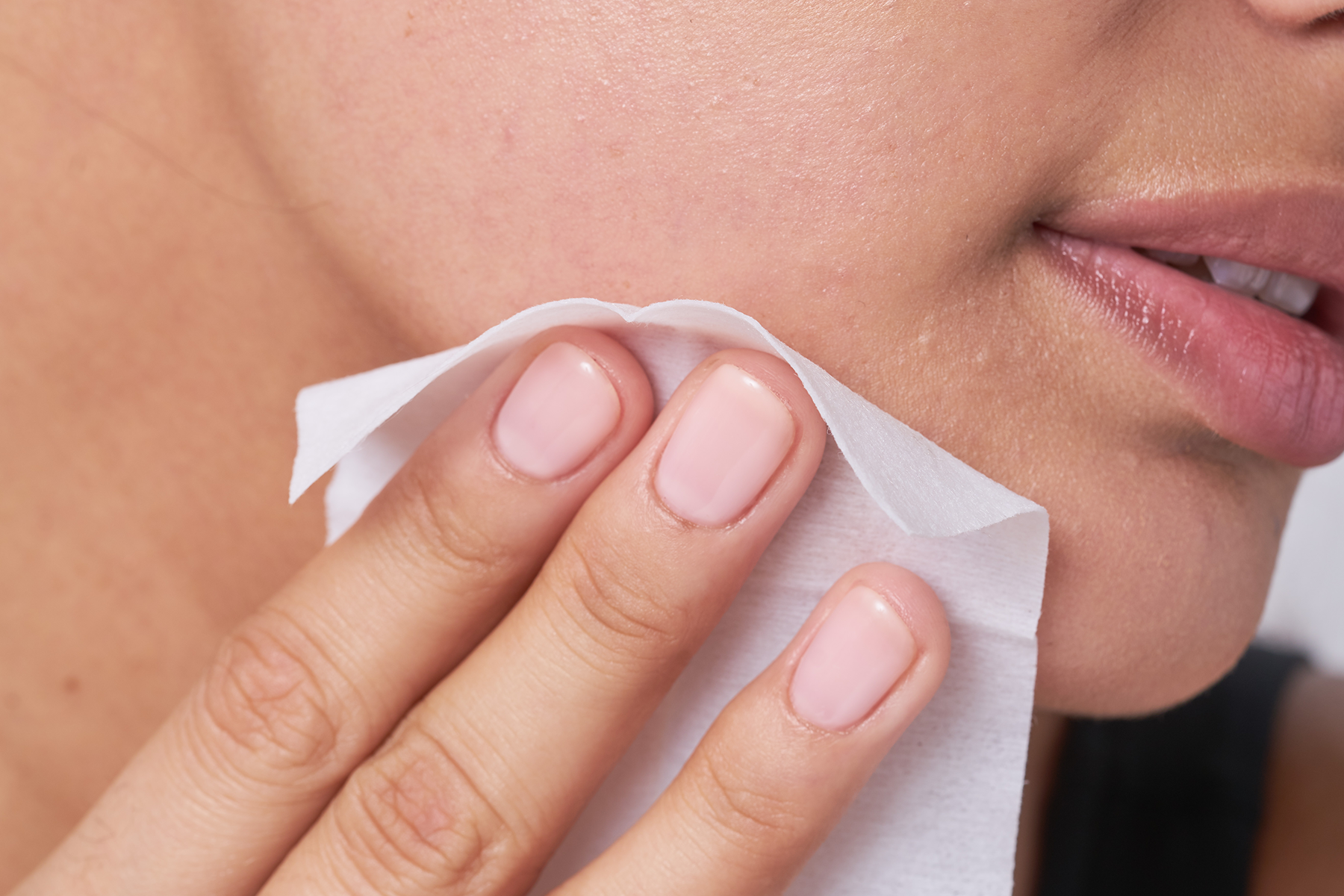The+Source
Its proper name is keratosis pilaris (often referred to as KP), but you may know it as “chicken skin,” “strawberry legs,” or just the bumps on the backs of your arms that make you feel self-conscious in a sleeveless top. Whatever you call it, you’re not the only one dealing with scaly, sandpaper-like texture on certain areas of your body.
What is keratosis pilaris?
KP is the skin condition that most often crops up on the backs of the upper arms or on the cheeks, thighs, or buttocks and resembles the rough texture of goosebumps. The bumps themselves are painless and benign and are typically red, brown, or white in color. While KP isn’t contagious, it is pretty common — some studies have estimated that more than half of all adolescents will develop KP at some point, and about 40 percent of adults will as well during their lifetimes.
What causes keratosis pilaris?
KP results when dead skin cells build up and clog hair follicles. Especially, it’s when the keratin (a protein found in hair and skin) in these dead cells accumulates and forms a plug. This blocks the follicle, preventing new hair from emerging and creating a little skin bump instead. Doctors are unsure what makes certain people more susceptible to developing KP. They believe that genetics may play a role (doesn’t it always?), although KP is also often seen in those with eczema, asthma, or allergies. Hormonal fluctuations could also be a factor, explaining why teenagers frequently develop KP during puberty and why KP can worsen during pregnancy. Additionally, KP is more common in the winter months when skin is already predisposed to dryness.
How do you treat keratosis pilaris?
If you’re dealing with KP for the first time (or think that you are), it’s wise to make an appointment with your dermatologist for confirmation. This is because KP isn’t always to blame for dry, bumpy body skin. But if your derm determines KP is the condition you have, they may prescribe a topical cream (or recommend an over-the-counter one) to loosen the dead cells. Alternatively, they might suggest a microdermabrasion treatment or chemical peel.
How do you prevent keratosis pilaris?
Unfortunately, there’s no way to prevent KP completely. However, there are many things you can do at home to minimize the look of KP and help prevent future occurrences. (Note: As mentioned above, KP can often worsen during pregnancy. However, before beginning any new skin treatment, those who are pregnant or breastfeeding should check with their doctor first.)
Exfoliate your body skin
You’re probably fairly diligent when it comes to keeping dead skin cells from collecting on your face, regularly doing your Dr. Dennis Gross Alpha Beta Daily Peel. However, most of us aren’t as fastidious when taking care of the skin below our necks. Since KP develops when dead cells have a chance to get together, it’s important to encourage cell turnover and get rid of the dead cells gunking everything up. As you know, most dermatologists prefer exfoliating the face with chemicals like alpha and beta hydroxy acids over using physical, particle-based exfoliants because chemical versions are gentler. These docs feel the same way about exfoliants for the body. While body skin is typically not as delicate as the kind covering your face, it’s still easily irritated by harsh scrubs and polishes. Ironically, these aggressive treatments can actually make the symptoms of KP worse, not better.
Instead, opt for a chemical exfoliant formulated specifically for body skin, like our Dr. Dennis Gross Alpha Beta Exfoliating Body Treatment, which can be used two to three times a week. You can also get in some light daily body exfoliation by washing with a cleanser that also contains alpha and beta hydroxy acids, such as our Dr. Dennis Gross Alpha Beta AHA/BHA Daily Cleansing Gel.
Choose oil-free formulations
You’ve heard us say (many times) that even complexions prone to breakouts need to moisturize every day because trying to dry out skin only makes a bad situation worse. It’s the same deal with your body. KP is exacerbated by dehydrated, flaky skin, so it’s in your best interests to keep it soft and supple. And just as we’ve told you to moisturize your face with oil-free formulas, we’re telling you to do the same with your body skin. Our Dr. Dennis Gross Alpha Beta Daily Moisturizer won’t clog your pores and will ensure skin softness, thanks to added ceramides and squalane.
And that directive extends to your sunscreen as well. Luckily, our Dr. Dennis Gross All-Physical Lightweight Wrinkle Defense Broad Spectrum Sunscreen SPF 30 is oil-free and comes in a mega skin that was built to cover bodies.
